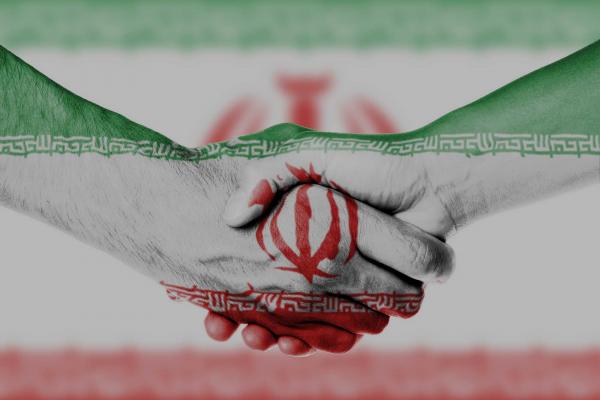We have a deal. And many of us in the faith community are relieved.
After months of negotiations, missing deadlines, and many stressful final days in Vienna, Iran has agreed to halt its nuclear weapons program for a decade or more, and allow credible international agencies to significantly monitor its behavior. In return, sanctions against Iran will be lifted once it demonstrates compliance on its end. Meanwhile, the West is hopeful that a younger Iranian generation might begin to liberalize the country, prompting a fuller entry into the modern world over the next 10 years. That hope remains to be seen.
Many of us in the faith community have called for diplomacy instead of the only plausible alternative: war with Iran. Other options simply aren’t possible. The other major world powers in the mix have made it clear they would not agree to harsher sanctions. Military strikes would only provoke more violence, terrorism, and war without solving the problem of Iran’s nuclear escalation. Iran’s nuclear weapons development would likely resume immediately without this deal, accelerated and entrenched by resulting military attacks on Iran.
In April, Sojourners organized a group of more than 50 Christian leaders in support of the Iran Framework Agreement in a statement titled “Hope, but Verify.” We said any agreement must be based on the credible inspections and verifications — which this final agreement seems to have. Skepticism about Iran’s trustworthiness is justified, so the “verify” component is critical to those of us who ascribe to “Christian realism.”
David Cortright, Director of Policy Studies at the University of Notre Dame’s Kroc Institute for International Peace Studies, provides a good summary of the facts of the deal:
The deal blocks Tehran’s pathways to nuclear weapons capability. Iran’s existing stockpile of enriched uranium will be largely eliminated. Iran will not produce any highly-enriched uranium suitable for weapons development. The number of centrifuges in operation will be reduced greatly. The reactor at Arak will be retooled so that it no longer produces weapons-grade plutonium. The breakout timeline for Iran to develop enough material for a nuclear weapon will be four times longer with a deal than without one.
Iran will be subject to the most intrusive inspections regime ever negotiated. Rigorous and unprecedented inspections will detect any Iranian attempt to renege on the deal. International inspectors will have access to all of Iran’s nuclear sites. The International Atomic Energy Agency will receive assurances that there are no military dimensions of Iran’s nuclear program.
The current regime of nuclear-related sanctions will be suspended only after the International Atomic Energy Agency verifies that Iran has taken necessary steps to curtail its nuclear program. Sanctions on missile development and arms imports will remain in place for several years. Sanctions on Iran will snap back into force if Iran reneges on its commitments. U.S. sanctions on human rights abuse and support for terrorism will remain in place.
Cortright concludes, “The deal isn’t perfect, but it is a very good. It achieves the priority goal of U.S. and international policy of reducing and placing tight controls on Iran’s nuclear capability … The choice is clear. Support the current nuclear deal or face a future of more proliferation and war.”
Theologically, pursuing options that will prevent further war with more dangerous weapons is the right course of action in a highly imperfect world. Those who oppose deals like this often proclaim a binary world of simple good and evil, which we don’t have — and believing so is a dangerous illusion.
For example, most Americans think our relationship with Iran began with t.he hostage crisis in 1979. But how many Americans know the name of Mohammad Mosadegh, the democratically elected prime minister of Iran who was overthrown by the CIA in 1953? Or the subsequent United States-imposed brutal dictatorship of Mohammad Reza Pahlavi, who became the Shah of Iran, until he was overthrown by the Islamic Revolution in 1979, preceding the hostage crisis? Everybody in Iran knows that history.
Ours is a real world of competing geopolitical agendas, and so the limiting of violence and evil is a good strategy. This deal with Iran has the chance to do that, especially since the only real alternative to the deal is military action. Critics need to suggest a truly viable alternative, or be candid with the American people if military action is really the course they favor.
We should be under no illusion that Iran will instantly change its destructive and disruptive behavior because of this agreement. We must therefore insist that Iran cease funding armed groups throughout the Middle East, improve its human rights record, and end its hostility toward Israel. And we must strongly resist that bad behavior through focused diplomatic and economic pressure.
At the very least, the agreement deserves a full and fair hearing in Congress. Under the terms of legislation passed earlier this year, the House and Senate will have two months to review and vote to either support or reject the deal. President Obama will then act on the congressional vote, and says he will veto a rejection of the deal. I urge Christians to make their views known to their congressional representatives, particularly over the August recess.
We need to make it clear to our leaders that many Christians favor practical and pragmatic steps to prevent Iran from developing a nuclear weapon, not merely rhetorical flourishes that demonstrate at best a desire to oppose the Obama administration at any cost, or, at worst, a desire to go to another war. Continuing the military strategies that have failed for decades is not a good option. Giving serious diplomacy and international pressure a chance before contemplating military action is both a better strategic option and a more Christian one.
Got something to say about what you're reading? We value your feedback!

